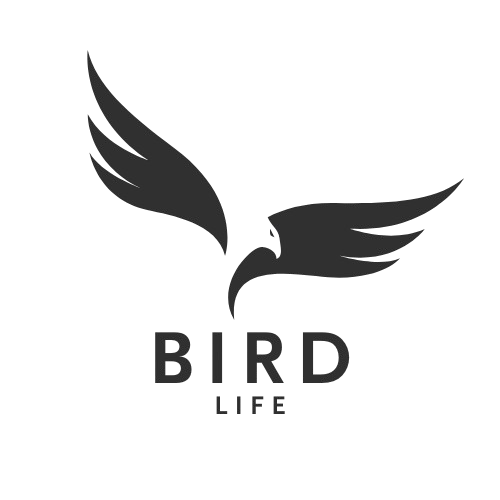Have you ever wondered what birds are up to when you turn your back? The secret world of nesting is full of surprises, beauty, and clever tricks. Step into a hidden gallery where every nest tells a tale, every feathered parent has a secret, and every image captures a moment you’d never see—unless you look a little closer.
The Hummingbird With a Rainbow Throat

A flash of iridescent color in the rainforest—this tiny hummingbird guards her walnut-sized nest like a jewel. Suspended from a branch in Costa Rica, she lines her cup with spiderwebs, making it stretchy enough to grow as her chicks do.
The Arctic Tern’s Marathon Nesting Journey

Every spring, Arctic terns travel from Antarctica to the northern tundra. Their simple ground nests are barely more than a scrape in the moss, but the chicks born here will one day fly the full length of the planet—just like their parents.
The Weaver’s Hanging Masterpiece

In southern Africa, sociable weaver birds create gigantic, communal nests that look like haystacks slung over acacia trees. These intricate structures can house hundreds of birds across generations, offering both warmth and protection from snakes.
The Camouflaged Killdeer Eggs

On gravel rooftops and rocky riverbanks across North America, killdeer lay their speckled eggs right out in the open. Their secret? Incredible camouflage. The eggs blend so perfectly with the stones that predators—and people—walk by without noticing a thing.
The Kingfisher’s Tunnel Home

European kingfishers dig long, winding tunnels into muddy riverbanks for their nests. Deep underground, away from prying eyes, their chicks are safe from both floods and hungry predators—like a secret world under the water’s edge.
The Ovenbird’s Clay Fortress

In Argentina’s grasslands, the rufous hornero—known as the “ovenbird”—builds a nest that looks just like a miniature clay oven. Baked hard by the sun, it shields the chicks from heat, wind, and even curious cattle.
The Secretive Nightjar’s Leafy Disguise

Nightjars in Asian forests are masters of disappearing. They lay their eggs right on the forest floor, relying on their mottled brown feathers and clever stillness to avoid danger. Sometimes, you’ll only spot them when they silently flutter away at dusk.
The Bald Eagle’s Towering Nest

High in the treetops of North America, bald eagles return each year to their massive stick nests—some bigger than a king-sized bed. These treetop fortresses are often used for decades, growing larger with each new branch the parents add.
The Tailorbird’s Sewn-Leaf Nursery

In the gardens of South Asia, the tiny tailorbird stitches living leaves together with plant fibers to create a snug cradle for its eggs. It’s nature’s own tailor at work—a green nursery hidden in plain sight.
The Flamingo’s Mud Mound

On salty African lakes, flamingos build cone-shaped mud nests that lift their eggs away from the baking ground and rising water. When the chicks hatch, they wobble down into a sea of pink legs and shimmering heat.
The Burrowing Owl’s Underground Hideaway

In the open prairies of North and South America, burrowing owls claim abandoned mammal burrows as their own. These underground homes offer coolness in summer and shelter from windstorms, making them a surprising haven in harsh landscapes.
The Bowerbird’s Artistic Display

Australian male bowerbirds don’t just build nests—they create elaborate “bowers” decorated with colorful objects to impress females. The brighter and neater the arrangement, the better their chances at winning a mate.
The Emperor Penguin’s Egg on Ice

In the Antarctic darkness, emperor penguin fathers balance eggs on their feet, tucking them under a warm fold of skin. While fierce winds blow across the ice, these devoted dads stand motionless for weeks, keeping the next generation safe.
The Swallow’s Mud Apartment Block

Barn swallows in Europe and North America plaster their nests from mud pellets under bridges and eaves. Over time, dozens may cluster together, forming a bustling neighborhood that thrums with fledgling chatter each spring.
The Secretive Cuckoo’s Sneaky Strategy

The Eurasian cuckoo is infamous for laying its eggs in other birds’ nests. The unsuspecting hosts raise the cuckoo chick as their own, never realizing the true identity of their demanding guest.
The Puffin’s Cliffside Burrow

On remote North Atlantic islands, puffins dig deep burrows into grassy cliffs. Inside, parents take turns bringing fish from the sea, while the chicks wait in cozy darkness until it’s safe to fledge.
The Woodpecker’s Tree Cavity Nursery

In forests across the world, woodpeckers carve out deep holes in tree trunks for their nests. These sturdy nurseries not only keep chicks safe from predators but also provide future homes for owls, bats, and other creatures.
The Sunbird’s Hanging Basket

In tropical Africa and Asia, vibrant sunbirds weave delicate, hanging nests from grass and bark. Suspended from twigs, the nests swing gently in the breeze, hidden among blossoms and leaves.
The Secret Song of the Marsh Wren

Marsh wrens of North America build dozens of dummy nests hidden in reeds, while only one will cradle their eggs. It’s a clever ploy to confuse predators and keep their true family safe.
The Swiftlet’s Edible Nest

High in Southeast Asian caves, swiftlets craft their nests from strands of sticky saliva. These delicate, white cup-shaped nests aren’t just home to chicks—they’re also prized for bird’s nest soup, making them one of the most unusual and valuable nests on earth.
